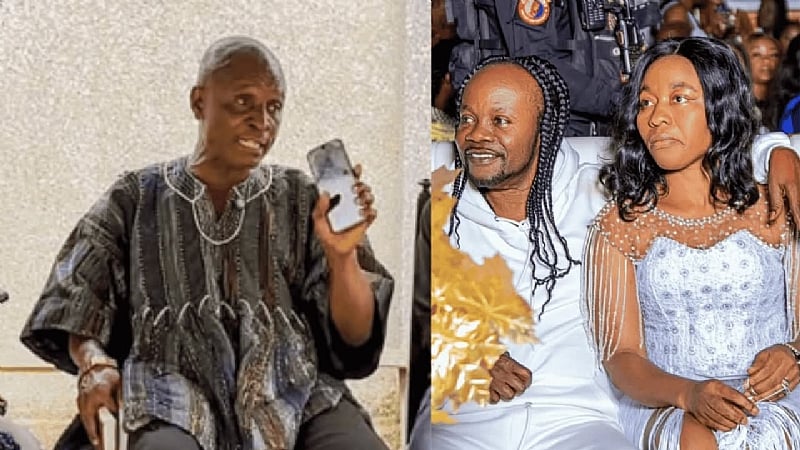The passing of Ghanaian highlife icon Daddy Lumba has ignited a contentious family dispute centered around funeral arrangements. The late musician’s family, led by Abusuapanin Kofi Owusu, has publicly accused his widow, Priscilla Ofori Atta, of disrespectfully excluding them from the planning process. This exclusion, they claim, extends to even the most basic aspects of mourning, such as viewing their beloved relative’s body. The family insists that tradition dictates their involvement in the funeral preparations and demands access to Daddy Lumba’s remains, emphasizing the cultural significance of their role in ensuring a proper send-off. They have issued a stern warning that proceeding with funeral arrangements without their consent will result in serious consequences, hinting at a potential escalation of the conflict. This power struggle underscores the complex interplay of familial relationships, cultural customs, and individual desires in the face of grief and loss.
At the heart of the dispute lies the family’s claim of being completely shut out of the funeral preparations. Abusuapanin Kofi Owusu has stated emphatically that the family has not even been allowed to view Daddy Lumba’s body since his death. This has deeply offended them and fuels their suspicion that the widow is deliberately sidelining them. Their demands for the mortuary keys symbolize their assertion of traditional authority and their right to participate in the final rites of passage for their kinsman. The family emphasizes that their involvement is not merely a matter of personal preference but a culturally mandated responsibility. This clash between the widow’s perceived autonomy and the family’s traditional prerogative has created a tense standoff, threatening to overshadow the mourning process.
The family’s concerns extend beyond the practical arrangements to the symbolic importance of their participation in the funeral rites. In Ghanaian culture, funerals are significant events, deeply rooted in tradition and custom. The family’s presence and involvement are essential components of these rituals, reflecting the interconnectedness of family and community in honoring the deceased. By excluding the family, the widow’s actions are perceived not only as disrespectful but also as a transgression against established cultural norms. The family’s insistence on their involvement underscores the vital role of tradition in navigating grief, offering solace, and ensuring a proper transition for the departed soul. Their public pronouncements highlight the potential consequences of disregarding these customs, suggesting that a failure to adhere to tradition could disrupt the harmony of the community and dishonor the memory of the deceased.
Adding another layer of complexity to the situation is the widow’s alleged silence. According to the family, Priscilla Ofori Atta has refused to communicate with them regarding the funeral arrangements. This lack of communication has further exacerbated tensions, fueling mistrust and hindering any potential for reconciliation. The family interprets this silence as a deliberate act of exclusion, reinforcing their perception of disrespect. The absence of dialogue prevents the parties from finding common ground and working towards a mutually agreeable solution, emphasizing the need for open communication and mutual respect in navigating sensitive family matters, particularly in the context of bereavement.
While the family grapples with these internal conflicts, public expressions of mourning for Daddy Lumba continue. A book of condolences has been opened at the late musician’s private residence in Kinshasha Crescent, Accra, allowing fans and well-wishers to pay their respects and offer messages of sympathy. This public display of grief provides an outlet for shared mourning and highlights the widespread impact of Daddy Lumba’s music and legacy. Furthermore, a candlelight vigil is planned for Saturday, August 2, 2025, at Independence Square in Accra, offering another opportunity for public remembrance and celebration of his life. These public events underscore the profound influence Daddy Lumba had on Ghanaian society, transcending the private family dispute and uniting the nation in mourning.
The Ghanaian government has also acknowledged the significance of Daddy Lumba’s contributions to the music industry and pledged support for a befitting funeral. This official recognition further elevates the importance of the funeral arrangements and adds weight to the family’s demands for involvement. The government’s assurance of a dignified funeral serves as a public affirmation of Daddy Lumba’s legacy and underscores the nation’s collective responsibility to honor its cultural icons. However, the ongoing family feud continues to cast a shadow over the preparations, emphasizing the need for a resolution that respects both tradition and the wishes of all involved parties, allowing the nation to mourn its beloved musician with unity and respect.














